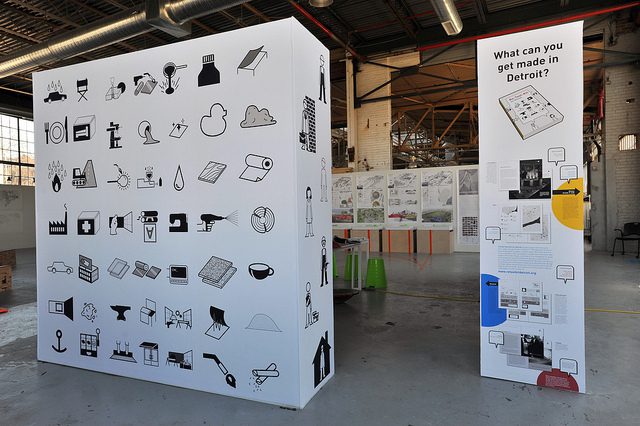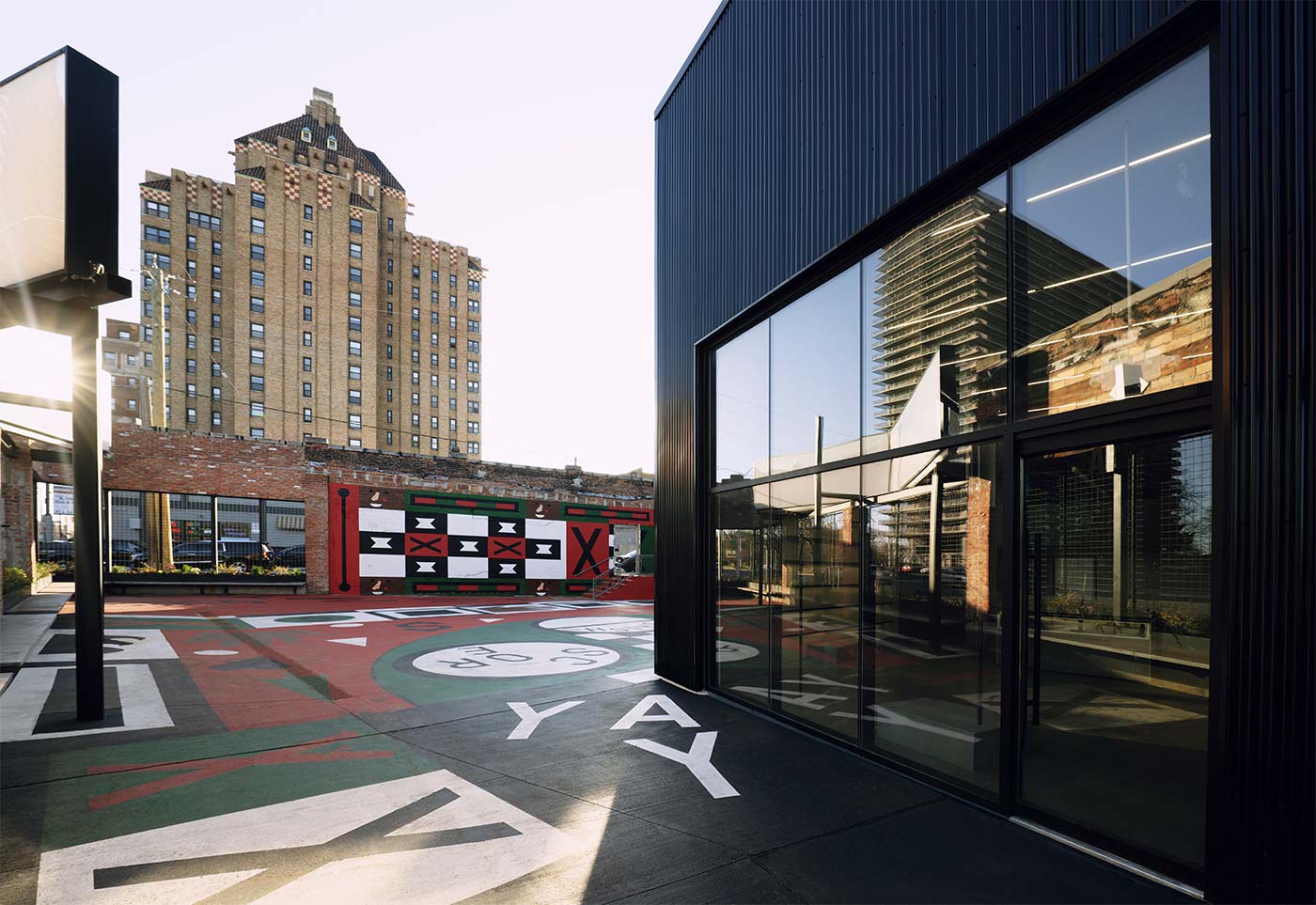
Re: Tool-Kit for Detroit featured in Dwell
Re: Tool-Kit for Detroit featured in Dwell
Heidi Beebe, Seth Ellis, John Marshall, and Julia McMorrough led a research team of students and historians in their extensive study into fabrication, the Re: Tool-Kit for Detroit. The team was recently interviewed by Dwell about the project.
The group’s work, made possible via Taubman College’s Research on the City grant from Alan and Cynthia Berkshire, seeks to create new fabrication possibilities for Detroit by illustrating the city’s raw and under-utilized generative potential in an easily digestible form. The study, supported by interviews with 47 Detroit businesses, questions if it is in fact possible to get anything you can imagine made in the Motor City, or if the well-known assertion is incorrect.
John Marshall, contributor and director of the UM Integrative Design graduate program, discussed the year spent researching the project, describing how “a number of businesses we had already spoken to burned down, relocated, and went bust. On the other hand, many of the students that worked as research assistants on the project chose to stay in the city after graduation. Detroit isn’t Silicon Valley, but that’s exactly why it’s right for some people and some businesses.” The conclusion seems to be that Detroit, as a manufacturing power, is a sleeping giant, sitting on several production facilities operating at very low capacities and simply longing for someone to do “a better job of connecting people that want to make stuff from around the world and the people that can do it in Detroit.”
Re: Tool-Kit for Detroit is as much a study of representing the complex manufacturing history of the area in cleanly understandable ways as it is a sympathetic exploration of Detroit’s potential. The project uses stylized, minimal iconography and aesthetics to visually illustrate its points. As Heidi Beebe stated, the project’s viability depends on its ability to “[package] the research in a way that is accessible to designers, and students of arts, architecture and design who may not be fabricators.” In this regard, the design sensibilities on display echo Marshall’s argument for the city’s potential fabrication resurgence: “It’s not simply a matter of financial transactions, it’s about people.”









